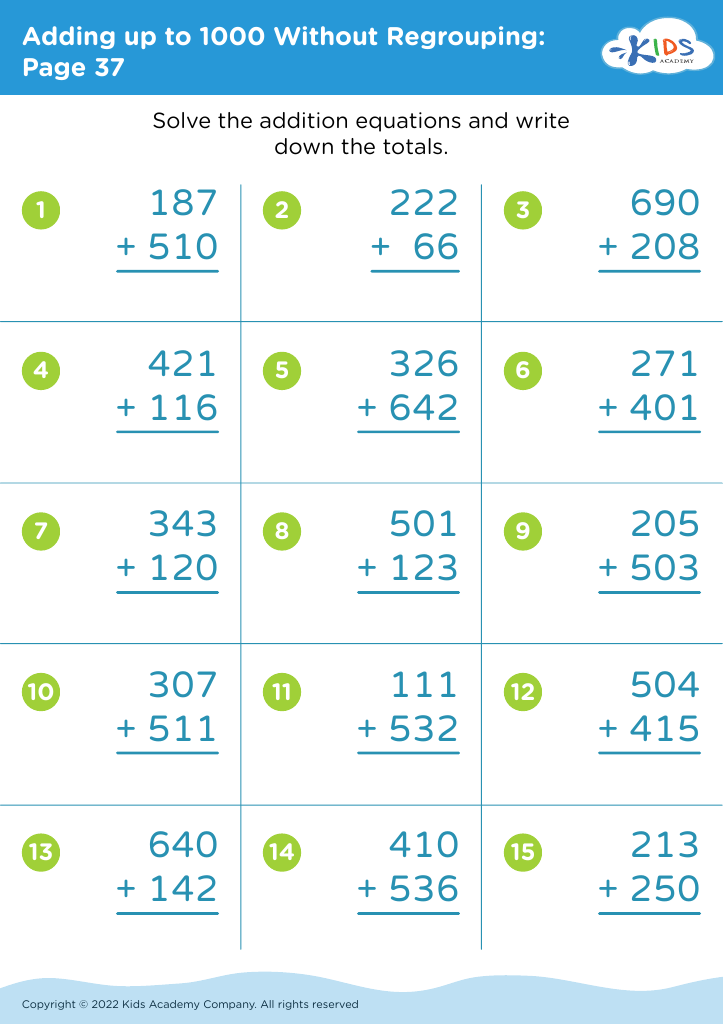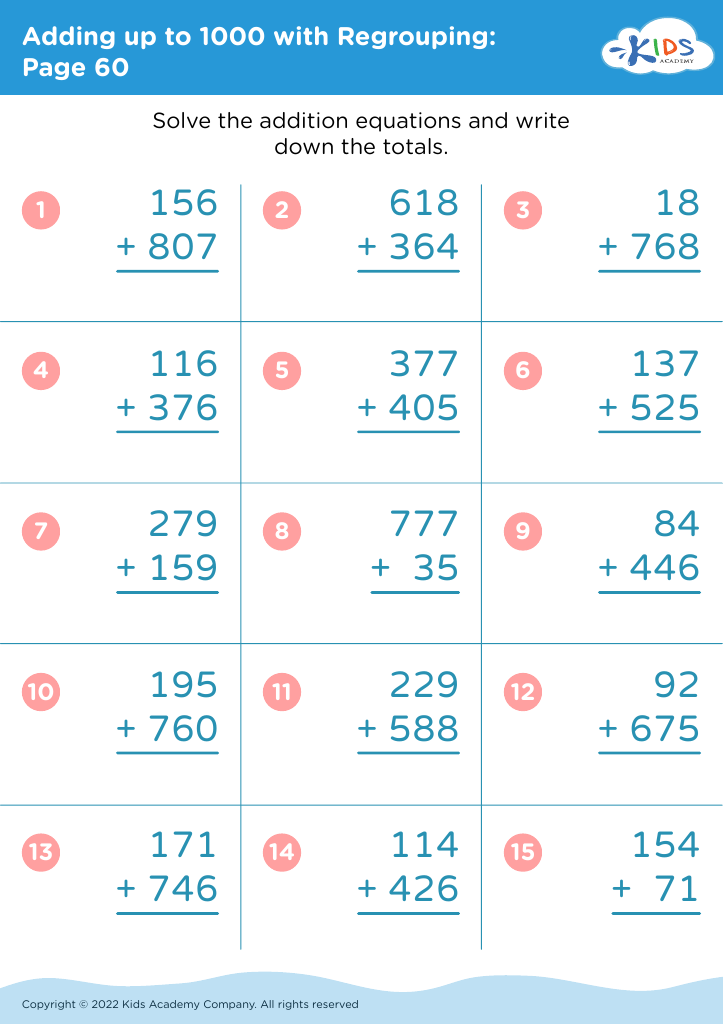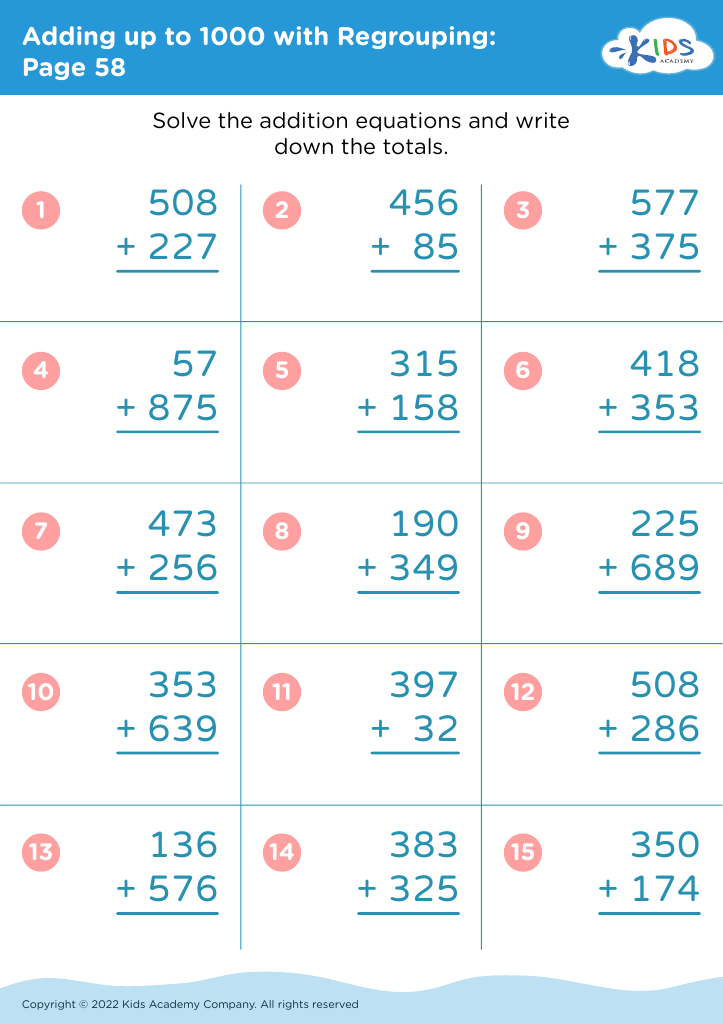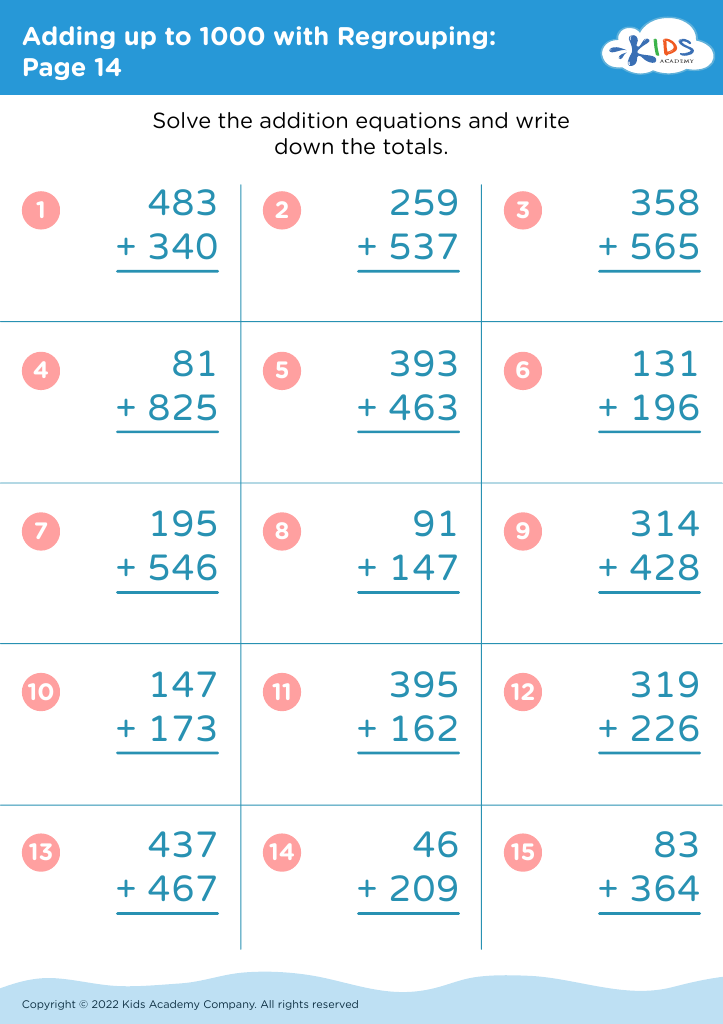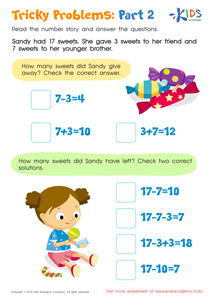Color Identification Grade 2 Adding up to 1000 Worksheets
6 filtered results
-
From - To
Enhance your second grader's learning experience with our "Color Identification Grade 2 Adding up to 1000 Worksheets." These engaging worksheets combine essential math skills with vibrant colors, making arithmetic fun and interactive. Students will practice adding numbers up to 1000 while identifying and coloring objects, reinforcing their understanding of numbers in an enjoyable way. Perfect for classroom or home use, these worksheets promote critical thinking, fine motor skills, and visual differentiation. Encourage your child’s confidence in math with colorful activities that make learning exciting. Explore our collection today and watch their skills blossom as they work towards mastering addition!
Color identification plays a crucial role in early childhood education, particularly in grade 2. Children at this age are developing cognitive skills, visual perception, and language abilities. Learning to identify colors not only enriches vocabulary but also enhances observational skills, which are foundational for learning across subjects, particularly in art, science, and mathematics.
When teachers or parents emphasize color identification, they foster a child's ability to categorize and recognize patterns. This foundational skill translates well into mathematics, especially when introducing concepts such as addition and number sense. For instance, the act of grouping colored objects to help visualize adding up to 1000 can make the learning process engaging and tangible.
Understanding colors also promotes creativity and innovation as children explore the world around them. As they participate in various activities involving colors—such as creating art projects or sorting objects—they are actively participating in their learning journey. Furthermore, these early skills can influence a child's self-esteem and confidence in their ability to communicate and engage with others, setting the stage for future academic success. Thus, fostering color identification can have a long-lasting impact on a child's overall educational experience.


